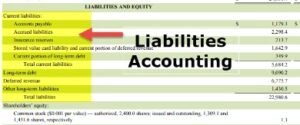The IASB and the FASB have been working on the convergence of IFRS and GAAP since 2002. Due to the progress achieved in this partnership, the SEC, in 2007, removed the requirement for non-U.S. Companies registered in America to reconcile their financial reports with GAAP if their accounts already complied with IFRS. Companies trading on U.S. exchanges had to provide GAAP-compliant financial statements.
What are the 4 principles of GAAP?
The four basic principles in generally accepted accounting principles are: cost, revenue, matching and disclosure.
This principle requires accountants to use the same reporting method procedures across all the financial statements prepared. Though it is similar to the second principle, it narrows in specifically on financial reports—ensuring any report prepared by one company can be easily compared to one another. Accountants are responsible for using the same standards and practices for all accounting periods. If a method or practice is changed, or if you hire a new accountant with a different system, the change must be fully documented and justified in the footnotes of the financial statements. This principle ensures that any company’s internal financial documentation is consistent over time.
Showing You Understand GAAP on Resumes
The principle of regularity requires that accountants use an established system for their reporting. This principle is critical as it prevents accountants from simply doing whatever feels convenient in the moment and leaving other parties to figure out the logic behind their reports. For financial analysts performing valuation work and financial modeling, it’s important to have a solid understanding of accounting principles.
3 No-Brainer Stocks to Buy Right Now for Less than $50 – The Motley Fool
3 No-Brainer Stocks to Buy Right Now for Less than $50.
Posted: Fri, 26 May 2023 14:30:00 GMT [source]
Under the accrual basis of accounting, revenue must be reported on the income statement in the period in which it is earned. This means that as soon as a product is sold, or a service has been performed, the company recognizes revenue from the sale. For companies that follow GAAP, these principles are at the core of all of their accounting transactions. Businesses use them to organize and summarize financial information into accounting records.
Who Created GAAP?
She’s passionate about helping people make sense of complicated tax and accounting topics. Her work has appeared in Business Insider, Forbes, and The New York Times, and on LendingTree, Credit Karma, and Discover, among others. For example, potential lawsuits may be regarded as losses and are reported but potential gains from other What Are Generally Accepted Accounting Principles Gaap? sources are not. Financial statements must be based purely on facts and concrete numbers instead of speculation or forecasting. Other influential organizations include the Government Finance Officer’s Association (GFOA), American Accounting Association, Institute of Management Accountants, and Financial Executives Institute.
- It primarily exists to make sure that no information is omitted from the report.
- In practice, since much of the world uses the IFRS standard, a convergence to IFRS could have advantages for international corporations and investors alike.
- GAAP pronouncements into roughly 90 accounting topics and displays all topics using a consistent structure.
- She has worked in the private industry as an accountant for law firms and ITOCHU Corporation, an international conglomerate that manages over 20 subsidiaries and affiliates.
- This accounting principle refers to the intent of a business to carry on its operations and commitments into the foreseeable future and not to liquidate the business.
- While GAAP includes a number of official accounting rules and standards, there there are 10 principles that can help you understand the mission of GAAP.
GAAP may seem to take a «one-size-fits-all» approach to financial reporting that does not adequately address issues faced by distinct industries. For example, state and local governments may struggle with implementing GAAP due to their unique environments. New GAAP hierarchy proposals may better https://kelleysbookkeeping.com/federal-income-taxes/ accommodate these government entities. Because GAAP standards deliver transparency and continuity, they enable investors and stakeholders to make sound, evidence-based decisions. The consistency of GAAP compliance also allows companies to more easily evaluate strategic business options.
Principle of Utmost Good Faith
Finally, the principle of utmost good faith requires that an accountant will always tell the truth and operate in good faith as part of their duties. Professionals must consistently practice the standards and procedures outlined in GAAP. There are four main principles of GAAP that we follow throughout all of accounting.

To achieve basic objectives and implement fundamental qualities, GAAP has four basic assumptions, four basic principles, and four basic constraints. Before joining the team, she was a Content Producer at Fit Small Business where she served as an editor and strategist covering small business marketing content. She is a former Google Tech Entrepreneur and she holds an MSc in International Marketing from Edinburgh Napier University. Derived from the Latin phrase uberrimae fidei used within the insurance industry. The 35-member Financial Accounting Standards Advisory Council (FASAC) monitors the FASB.
If it doesn’t follow one of these four principles, then it’s really not following accounting. For companies, the pressure to hire good accountants is intense, as the costs for falsifying records or having inadequate accounting services are high. If a company changes the way it records or presents financial documents, the accountants are expected to disclose and explain the reasons behind the changes.

